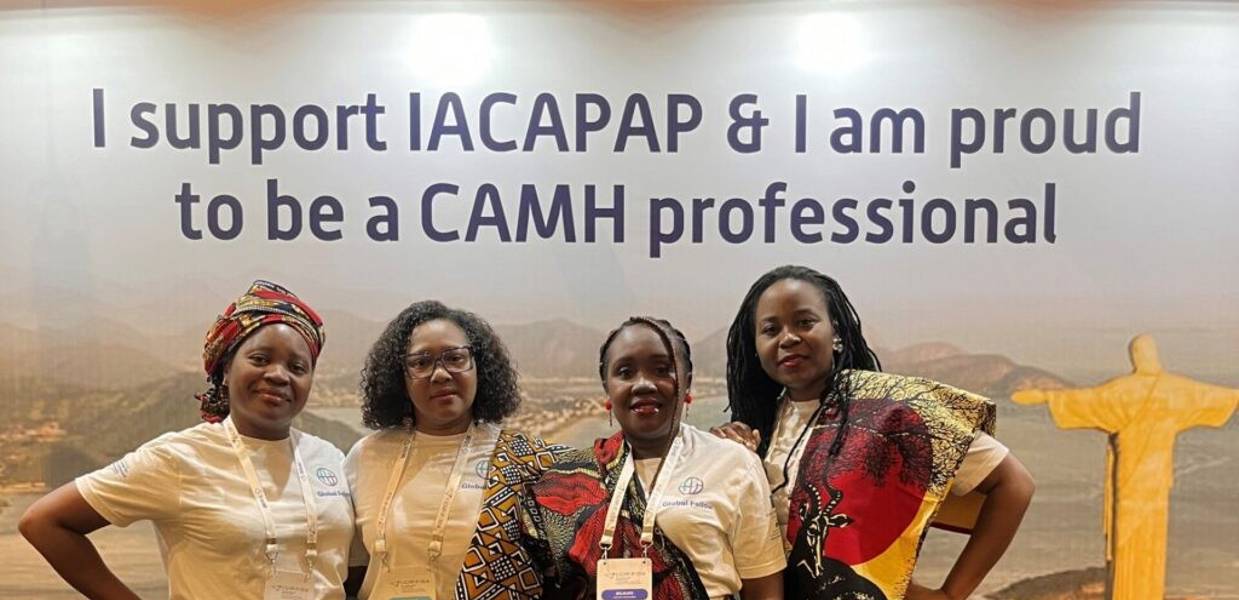
Fellows from Mozambique, Pakistan, Kenya, and Burundi chart paths for youth mental health access
The geographically expansive mission of the SNF Global Center is baked into its name. But what does a “global” approach to a ubiquitous problem—with one in seven young people facing a mental health condition, according to the World Health Organization—look like?
One important component of the SNF Global Center’s multifaceted strategy is promoting exchange of knowledge across borders to spark innovation, build capacity, and fight stigma, especially in under-resourced regions that are too often left out of the global conversation, despite their immense potential for innovation and contribution.
Three SNF Global Center Fellowship Programs—all launched in 2024—seek to support professionals from low- and middle-income countries in their work.
SNF Global Center Clinical Fellowships, like the one Dr. Rungo is participating in, are helping build capacity by providing mental health practitioners with the specialized training they need. The two other practioners in Dr. Rungo’s fellowship cohort, a psychologist and an occupational therapist, are also from Mozambique, a country with 16 million children and—as of the start of the fellowship program—a single child psychiatrist.
That first child psychiatrist Helena Daniel, no longer alone since all three fellows have returned to Maputo, the country’s capital, for the second year of the fellowship. “Thanks to this initiative, Mozambique now has two child psychiatrists and a dedicated team—including a psychologist and an occupational therapist—focused on child mental health,” said Dr. Daniel. “Investing in childhood is investing in the future—it transforms lives and lays the foundation for healthier generations.”
The second cohort of SNF Global Center Clinical Fellows, again a psychiatrist, a psychologist, and an occupational therapist, recently arrived Porto Alegre, Brazil, for their first year of training and will return to Nampula, Mozambique for their second. The multidisciplinary structure of the Clinical Fellowship cohorts was contributed by Mozambican stakeholders, who envision these teams working collaboratively in key nodes within the public health system upon their return, providing comprehensive support to children and young people.
“The SNF Global Center Clinical Fellows Program is providing our clinicians with invaluable training and exposure to the latest evidence-based trainings in child and adolescent mental health,” said Dr. Wilza Fumo, Director of the Mozambique Ministry of Health’s Department of Mental Health. “Our partnership with the SNF Global Center will contribute to our mission to build a robust national healthcare system that leads to positive health outcomes for the children and adolescents of Mozambique.”
SNF Global Center Research Fellowships target early-career scientists who are exploring innovative mental health solutions that make effective use of limited resources. Two Research Fellows were named in the inaugural cohort in late 2024.
Research Fellow Dr. Syed Usman Hamdani is helping school counselors in Pakistan deliver cognitive behavior therapy to students by applying the World Health Organization’s Early Adolescent Skills for Emotions (EASE) intervention to improve outcomes for young people with mental illness. “I am thrilled by this opportunity to make contributions towards a real-world impact in global CAMH,” he said using an acronym for child and adolescent mental health. “The fellowship will allow me to network and learn with the global community of CAMH professionals, especially in low-resource settings, and to create opportunities for increased collaborations to study, implement, and scale up evidence-based, preventive, promotive, and treatment CAMH services in a sustainable manner.”
Research Fellow Dr. Christine Musyimi is focused on supporting young people experiencing homelessness in Kenya to overcome self-stigma and access essential services. “I have always been interested in understanding disparities in health and enhancing mental health in low-resource community settings,” said Dr. Musyimi. “This fellowship marks a significant milestone in advancing my career as an adolescent mental health researcher in Kenya.”
Dr. Musyimi’s work recognizes an important reality about mental health care for young people: barriers to access are not only structural—such as limited providers, medical resources, or financial constraints—but also deeply social and cultural, including stigma and perceptions that discourage help-seeking.
SNF Global Center Communicator Fellowships aim to address many such hurdles that contribute to keeping serious needs from going unmet.
For the inaugural Communicator Fellowship, the SNF Global Center partnered with the Carter Center, the nonprofit founded by former United States President Jimmy Carter, and is funding a two-year fellowship for Avit Ndayiziga, a journalist from Burundi. In year one, he will complete reporting through Carter Center’s Mental Health Journalism Fellowship through a special call focused on the impacts of Climate Change on Mental Health, and in year two will continue his work and complete an additional related project supported by the SNF Global Center.
“Mental health is an underreported and often taboo issue in Burundi,” said Ndayiziga. “My reporting project aims to raise awareness and urge prompt actions to safeguard future generations. By reporting on this matter, I want to achieve a clear guide on dealing with the mental health impacts of climate change for young people.”
“A clear guide” is also an apt description of what the SNF Global Center is seeking to offer for progress on youth mental health worldwide. In addition to the three categories of fellowship, the Center is mapping the current landscape of resources and needs, adapting anti-stigma resources to local cultural contexts, creating innovative tools to facilitate delivery of services, and much more.